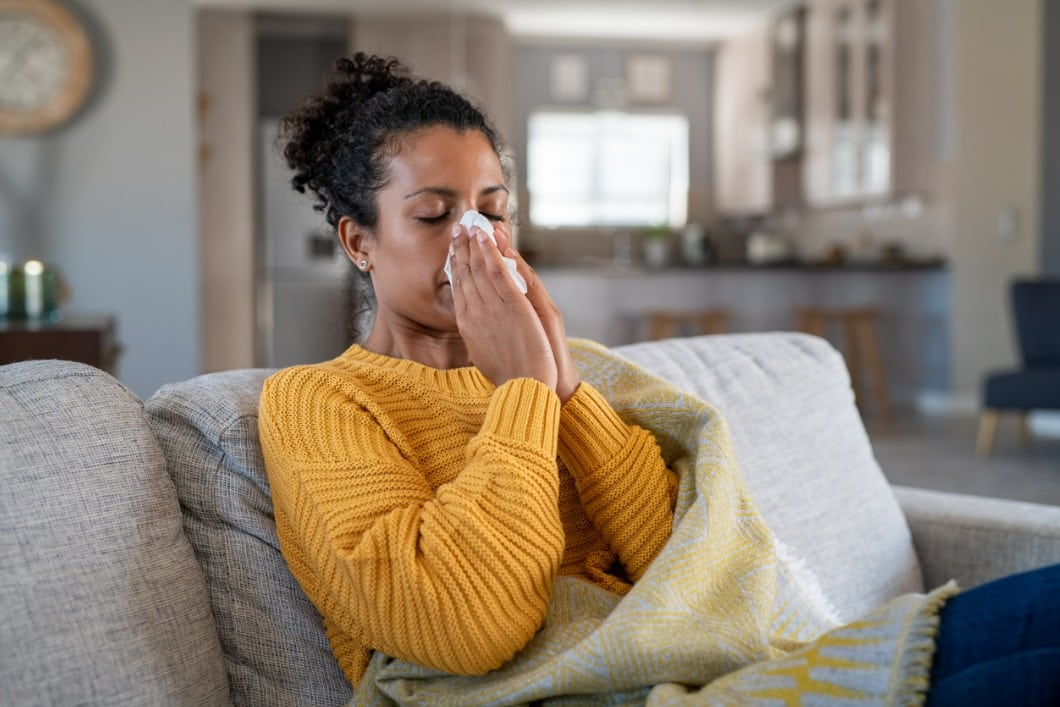5 Ways To Reduce Fall Allergies
- Posted on: Nov 8 2022
 The fall season can be a hard time for allergies in Central Texas. At this time of year the ragweed, grasses, and mold allergens begin peaking. For allergy sufferers, this can cause increased congestion, drainage, eye itching/redness, and more.
The fall season can be a hard time for allergies in Central Texas. At this time of year the ragweed, grasses, and mold allergens begin peaking. For allergy sufferers, this can cause increased congestion, drainage, eye itching/redness, and more.
How can you prevent and manage these symptoms? Read below for some tips!
1. Daily saline rinsing
If you are experiencing a lot of drainage and congestion, daily saline rinsing is extremely important to keep your nasal lining healthy and free of pollen. Saline rinsing can be done using pre-mixed saline or salt packets with water; it is easiest to do this in the shower to avoid all the mess!
If you are hiking, playing golf, cutting grass, or just walking your dog for 15 minutes outside you are exposing yourself to pollen that can irritate your sinus lining so it is important to saline rinse after these activities.
We also recommend patients remove their pollen-ridden clothes and/or shower after longer outdoor exposure.
2. Take allergy medications before going outdoors
If you anticipate prolonged outdoor exposure to allergens, it is best to take allergy medications 30 minutes before you head outside. This can include oral antihistamines such as Zyrtec® or Allegra® as well as nasal sprays like fluticasone (Flonase) or azelastine (Astelin or Astepro). If you have eye itchiness/redness try an over-the-counter antihistamine drop like Pataday®.
Medications can only go so far in preventing or reducing symptoms but it’s better than having no protection at all.
3. Track the allergy counts and plan your outdoor exposure
You can track allergy counts online on different websites in Austin or Central Texas. If counts are high you may want to be more cautious about spending long hours outdoors. Plan your outdoor activities accordingly and if you can’t avoid higher allergen exposure try wearing a mask, increasing your saline rinsing, and decreasing symptoms with some medications.
4. Build your immunity with allergy drops
Allergy drops (also called sublingual immunotherapy) are a liquid concentration of molecular allergens that are placed under the tongue daily to build immunity to those specific allergens. This is not a treatment during allergy season, but a prevention long term so that each allergy season is less bothersome. The great part about allergy drops is that if you do them consistently for 3-5 years you will greatly reduce your allergic response and need for daily medications for the rest of your life.
If you are interested in allergy drops, schedule an appointment at our clinic for an assessment and allergy test.
5. Don’t forget about indoor allergens!
Don’t forget that there are lots of indoor allergens that can bother the sinuses. This can include dust mites, mold, cockroach dander, and animal dander. To reduce your indoor allergy symptoms, make sure to keep your carpet and rugs vacuumed weekly, wash bedding weekly in hot water, use a dehumidifier to reduce mold, and make sure to change your air conditioner filters as recommended. Your pets carry lots of animal dander AND outside allergen pollen in your house so try to restrict your pets’ access to your bed or couch where pollen can get trapped. It is also recommended to bathe your pet weekly during allergy season.
Consultation
If you have more questions about managing your allergies please visit us at our clinic for an assessment. Call or securely text us at 512-601-0303 or complete our Request An Appointment form.
Tagged with: allergies, fall allergies
Posted in: Allergies

